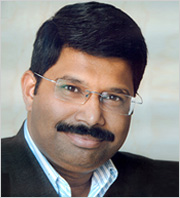
has shaped the marketing discipline like no other. As a measure of his influence, his tome is included alongside classics such as Adam Smith’s The Wealth of Nations, Machiavelli’s The Prince and Peter Drucker's The Practice of Management in Financial Times’ list of the 50 most influential business books ever published.
Dr Kotler’s big idea in 1967 was that companies ought to be driven by customers and markets, rather than by the intuition of marketing executives. He went on to bring scientific and analytical thinking into the marketing field to add to the rich description of markets that already existed in the marketing literature. “When I came in, it seemed to me that marketing needed more logical processes for making decisions,” recalls Dr Kotler. He based his new textbook on ideas synthesized from economics, behavioral science, organizational science and mathematical thinking.
Dr Kotler had been trained as an economist at the University of Chicago and MIT, studying under Nobel Prize-winning figures such as Milton Friedman, Paul Samuelson and Robert Solow. As a result, he introduced a variety of mathematical models to help companies allocate marketing resources, including setting the size and goals of the sales force.
Apart from Marketing Management, Dr Kotler has written several influential books like Principles of Marketing; Marketing Models; Strategic Marketing for Non-Profit Organizations; Social Marketing; Marketing Places; Marketing for Congregations; Marketing for Hospitality and Tourism; The Marketing of Nations.
At 76, Dr Kotler remains the quintessential marketing leader. He is still teaching, consulting for major corporations and speaking around the world. He credits this continuous feedback loop with enabling him to stay ahead of the curve on marketing trends. “The best line of attack is to attack yourself first,” Dr Kotler says on revising his classic work. “Be aware of the new ideas, trends and stories and make them prominent in the next edition.”
Now, Marketing Management is getting ready for another avatar, its 13th edition due for release in early 2008. Last year, it was also adapted for South Asia where Dr Kotler and Dr Kevin Keller (his co-author for 12th Edition) teamed up with Dr A Koshy (IIM-A) and Dr M Jha (IIM-B).
MBAUniverse.com interviewed Dr Philip Kotler on marketing trends and best-practices, need for South Asian edition of Marketing Management and his advice to management graduates on learning to market effectively. Excerpts from this exclusive MBAUniverse.com interview:
Q: At an overview level, what role does Marketing play in business strategy? How is marketing an important business function?
Marketing is much more than a department within a company handling marketing research and promotion. If it is only set up as a department, it won’t realize its potential in driving business growth. Marketing is properly a whole mindset of the company regarding its customers and its opportunities. Marketing describes the effort to create superior customer value that will satisfy a strong unfulfilled need felt by a clear target market.
As such, marketers must participate in formulating corporate strategy and even defining the corporate objectives. Marketers have the competence to look beyond the financial numbers to get at the heartbeat of the market and its cravings.
Q: In recent times, which is the most successful case in marketing world? What do they teach us?
I will say Starbucks is a great case. Marketers aim to find out how the target market makes its buying decisions. This calls for deep psychological and ethnographic analysis of buyer’s cognitive and emotional drivers. Much is being discovered about the role of emotion and customer experience in shaping customer preferences and behavior.
Thus, Howard Schultz of Starbucks saw the role that a good cup of coffee, in a relaxing setting, could play in providing people with a “third home…a place to meet others or work with you computer undisturbed.”
Q: How should young management graduates learn and implement marketing thoughts & tools? What should they be reading?
Marketing is a dynamic subject with new ideas happening all the time. The student needs to observe companies that have achieved real success such as Apple, Starbucks, Harley Davidson. Students should then probe the factors and strategies underlying these outstanding firms.
Also I recommend that students and young executives should read articles about successful as well as unsuccessful companies. Read the academic literature. Read the best selling new books on marketing. This is what I do in order to deepen my understanding of the theory and practice of marketing.
Q: What was the thought behind the recent launch of South Asian edition of Marketing Management?
Well, Marketing's core concepts --segmentation, targeting positioning, the 4Ps, etc.--work around the world. But marketing practices are quite varied to meet the specific conditions of a national or local market. Thus the principles for building the brand called McDonalds are pretty universal, but McDonalds has to vary its menu and promotion and prices in each country. As another example, cigarettes in the U.S. are never sold one at a time. But in India, this is a clever adaptation to the lower purchasing power of many smokers. The Indian edition coauthored by Koshy and Jha does an excellent job of adapting and adding content of great relevance to India.
I am very pleased with this edition.
Q: Top Indian B-schools including the IIMs are reporting a drop in the interest levels among their students with respect to marketing specialization. What is your advice to marketing faculties who are worried that their best students are choosing other lucrative careers like Investment Banking and Consulting?
The world of finance has become hot as a result of venture capital firms, private equity firms, and hedge funds, all promising a chance of big money to be made by savvy or lucky players. Finance lends itself more to mathematics and many Indians are well-trained in mathematics. So I am not surprised at this migration to finance and similarly to consulting.
I have always advised my students to do a double major in marketing and finance. They should take some extra courses in marketing even if they don’t specialize in the subject. I suspect that companies that are run only by financial thinkers will eventually encounter problems in not fully researching and understanding changing customer mindsets.
Remember that there will always be many students who will much prefer working with people rather than only with numbers, and who feel challenged to creatively invent new marketing strategies and tactics.



























